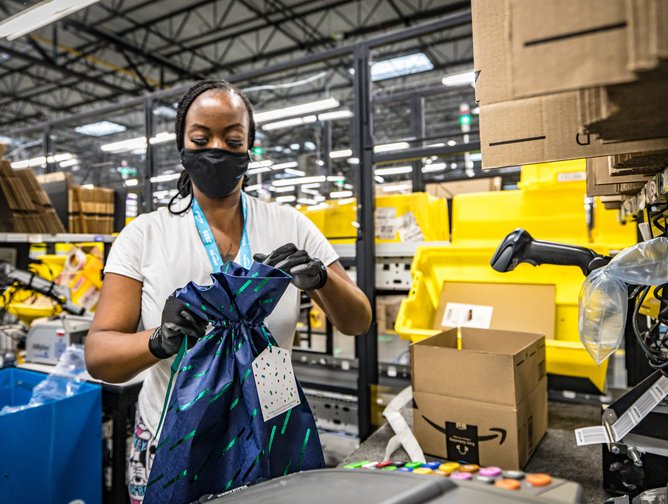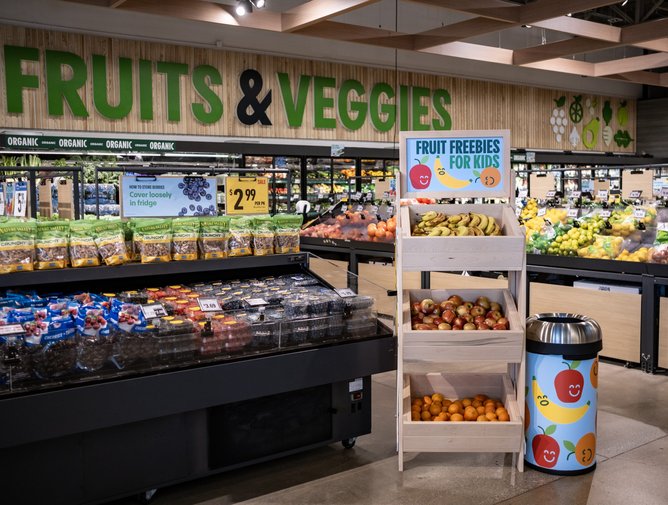How Amazon is Accelerating Sustainability Goals with AI

Amazon needs little introduction.
As the world’s fifth-most valuable company with a market value of US$1.58 trillion, Amazon has a footprint that spans most of the world and a 1.5 million-strong workforce.
Given such size and scale, the journey to net zero might seem insurmountable.
Not so for Amazon, which is making significant strides in achieving its ambitious goals – to be powered by 100% renewable energy by 2025 and achieve net-zero carbon emissions across the entire business by 2040.
Reaching 90% renewable energy by the end of 2022, five years ahead of schedule, the ecommerce giant is on track to hit its 2025 goal having procured more than 100 new solar and wind energy projects globally in 2023. This brings the total to 500 projects.
Powering its facilities with renewable energy is just one part of Amazon's net-zero goals, with plans to increase EVs in its delivery fleet to 100,000 by 2030, reduce use of packaging, and prevent waste.
To meet these goals at speed and scale, Amazon is increasingly turning to Artificial Intelligence (AI).
As the most transformational technology of our time, the company is leveraging AI and ML across nearly every part of the business – with AI becoming an “increasingly important part of our work to build a more sustainable business", says Kara Hurst, Amazon’s VP and Head of Worldwide Sustainability.
So how exactly is Amazon using AI to innovate on sustainability goals?

Reducing packaging use with AI
Packaging is one of Amazon’s primary areas of sustainable focus – and as well as expanding use of paper-based packaging and recyclable paper, Amazon is focused on reducing unnecessary packaging.
To help achieve this, the tech giant uses the Packaging Decision Engine, an AI model that helps to determine the most efficient packaging options to ship millions of items.
According to Kara, data scientists have trained the model to understand a variety of product attributes, including an item’s shape and durability, and to analyse customer feedback on how different packaging options have performed.
“The model is constantly learning and has helped reduce the company’s use of packaging material since it launched in 2019,” says Kara.
With this – and other packaging innovations, including replacing single-use plastic with 100% recyclable paper – Amazon has eliminated more than two million tonnes of packaging material worldwide since 2015.

Preventing and Reducing Waste and Returns With AI
AI-powered technology is also being used to help limit returns and deliver more sustainable shopping.
Firstly, AI is used across a growing number of fulfilment centres to detect damaged goods, and ensure it is not sent out and then returned. Three times more effective at identifying damaged goods than human beings, the technology flags damaged items to then be rerouted to be resold at a reduced price.
To further reduce returns, Amazon has introduced various AI-powered innovations into the clothes shopping process. These include personalised size recommendations using AI and ML to help customers find what size fits them best, personalised feedback from customers who wear the same size, and improved size charts.
“Amazon also developed a Fit Insights Tool to help brands and selling partners better understand customer fit issues and incorporate feedback into future designs and manufacturing – helping brands more accurately list their items for customers and reduce fit-related returns,” says Kara.
Amazon is also tackling food waste with AI. According to Kara, a growing number of Amazon Fresh grocery teams are using ML-based solutions to automate store shelf monitoring for fruits and vegetables.
This AI-powered solution analyses crate images to detect visual imperfections on the produce like cracks, cuts, and pressure damage.
“To ensure the defective produce is recycled whenever possible, AmazonFresh resells the usable produce to local contractors who further resell the produce at reduced prices for use cases like feeding to livestock, ensuring less food goes to waste,” Kara says.

Here, Kara outlines three more ways Amazon is using AI to deliver on sustainability.
1 Democratising data to help companies meet their goals
Amazon democratises AI so other companies can use it to help meet their own sustainability goals. For example, AWS worked with a Brazilian nonprofit to develop a large-scale AI model that monitors deforestation. With this, it is estimated that 3.4 million hectares of forested areas will be restored.
2 Measuring carbon footprint for products
Thanks to Flamingo, an AI-based algorithm, Amazon can more quickly and accurately measure the carbon footprint of its products.
“The algorithm is already helping Amazon’s team calculate the environmental impacts of everything from cotton t-shirts sold by Amazon Private Brands to carrots sold by Amazon Fresh,” says kara. In one experiment, the algorithm reduced the time scientists spent mapping 15,000 Amazon products from a month down to several hours.
3 Using AWS chips to power AI more efficiently
Amazon is also improving the sustainability of AI by making its cloud infrastructure more energy efficient, including by investing in AWS chips.
AWS Trainium is a high-performance ML chip designed to reduce the time and cost of training generative AI models — cutting training time for some models from months to hours. This means building new models requires less money and power, with potential cost savings of up to 50% and energy-consumption reductions of up to 29%, versus comparable instances.
"Our second-generation Trainium2 chips are designed to deliver up to four times faster training than first-generation Trainium chips while improving energy efficiency up to two times," says Kara. "AWS Inferentia is our most power-efficient AI inference chip. Our Inferentia2 AI accelerator delivers up to 50% higher performance per watt and can reduce costs by up to 40% against comparable instances."
*******************
Make sure you check out the latest edition of Sustainability Magazine and also sign up to our global conference series - Sustainability LIVE 2024.
*******************
Sustainability is a BizClik brand.






